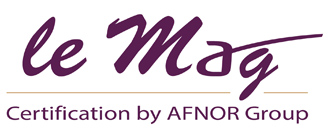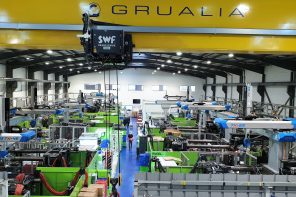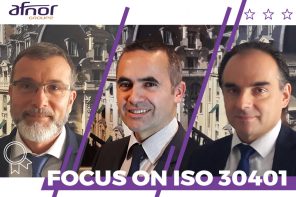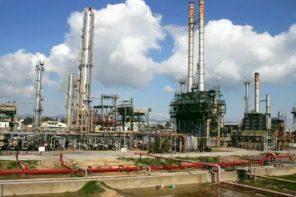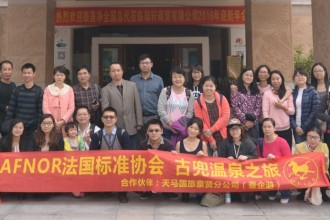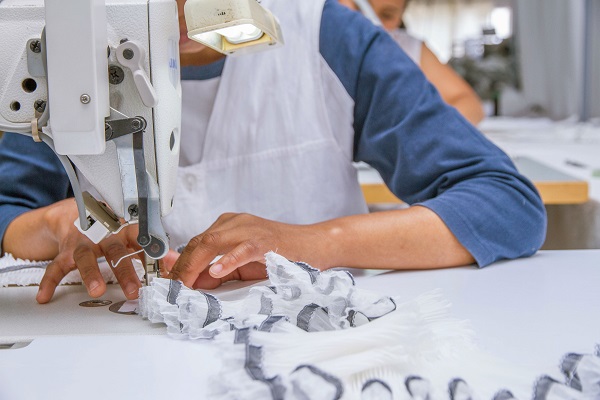
Akanjo has become the first company in Madagascar to receive “Committed to CSR” label with the “confirmed” status. A label that enables the manufacturer of luxury textiles to highlight its efforts in favor of sustainable development. At the same time, its Acipenser subsidiary, which produces caviar, has been ISO 14001-certified.
Akanjo, based in the capital of Madagascar, Antananarivo, recently celebrated its twentieth anniversary. The company makes products for luxury off-the-peg clothes and haute couture. The 1,300 employees possess a broad range of know-how and command even the most refined finishing techniques. They meet the demands of luxury clothes designers in terms of quality, know-how, and deadlines. But they also care about sustainable development and are keen to show it. An ambition that prompted Akanjo to call on AFNOR Certification for an assessment on the basis of ISO 26000, the international voluntary standard that sets forth the guidelines for the deployment of sustainable development policies in companies.
The company was awarded the “Committed to CSR” label and classified as “confirmed” (between 500 and 700 points out of 1,000).
“We took a whole raft of measures very early on to protect our human capital and its environment,“ in particular in terms of education, vocational training and safety at work, explains Vice-General Administrator of Akanjo Alexandre Guerrier. The employees can now train for various qualifications that offer attractive career prospects. They all have quality personal protective equipment adapted to the jobs they do. The site’s employees and their families can also use the company medical centre.
AFNOR Certification auditor Stéphanie Raghoonauth went about measuring Akanjo’s CSR initiatives by spending some 10 days on the spot, in the company of a local expert in labour legislation for some of the time. “They visited all the facilities, the production workshops, the development department, HR, etc. They also visited external entities, including our partners, the public authorities, and suppliers,” states Alexandre Guerrier.
Committed to CSR: ecology and economics
Akanjo grew its business in a country where infrastructure is cruelly lacking. Power cuts are recurrent in Antananarivo. The company reduced its energy dependency by investing in a new generator, also halving its fuel consumption at the same time. It regularly replaces its machinery with equipment that consumes less energy. It is also testing a photovoltaic power plant that could ultimately supply 20% to 25% of the energy consumed by the company. Paper and cardboard are sorted and reused. Once compacted and transformed into logs, the waste paper and cardboard are used to fuel the wood-fired boiler in the dyeing workshop. Akanjo also makes compost from organic waste and recovers plastic that is used as a raw material by Arisoa, a local NGO that makes interlocking paving stones.
Water is another top priority. The capacity of the capital’s drinking water system is nowhere near sufficient. Akanjo has drilled its own water wells to relieve the pressure on the water network in the district where the company is located. In fact, the company became totally self-sufficient for its water in June 2016. But Akanjo’s social and environmental responsibility extends beyond the factory medical centre.
AFNOR Certification auditor Stéphanie Raghoonauth went about measuring Akanjo’s CSR initiatives by spending some 10 days on the spot, in the company of a local expert in labour legislation for some of the time. “They visited all the facilities, the production workshops, the development department, HR, etc. They also visited external entities, including our partners, the public authorities, and suppliers,” states Alexandre Guerrier.
Committed to CSR: ecology and economics
Akanjo grew its business in a country where infrastructure is cruelly lacking. Power cuts are recurrent in Antananarivo. The company reduced its energy dependency by investing in a new generator, also halving its fuel consumption at the same time. It regularly replaces its machinery with equipment that consumes less energy. It is also testing a photovoltaic power plant that could ultimately supply 20% to 25% of the energy consumed by the company. Paper and cardboard are sorted and reused. Once compacted and transformed into logs, the waste paper and cardboard are used to fuel the wood-fired boiler in the dyeing workshop. Akanjo also makes compost from organic waste and recovers plastic that is used as a raw material by Arisoa, a local NGO that makes interlocking paving stones.
Water is another top priority. The capacity of the capital’s drinking water system is nowhere near sufficient. Akanjo has drilled its own water wells to relieve the pressure on the water network in the district where the company is located. In fact, the company became totally self-sufficient for its water in June 2016. But Akanjo’s social and environmental responsibility extends beyond the factory gates. The company has also launched a number of initiatives in the community to compensate for the insufficiencies of the public authorities. The main roads leading to the site have been resurfaced with granite or clay paving stones. A system has also been set up to maintain the verges and to clean the open sewers.
Committed to CSR: aiming for “exemplary” status by 2020
And biodiversity has not been neglected either. The tree-filled garden is home to a host of orchids and to many birds that nest there for the night. Akanjo is also at the origin of a plan to save the biodiversity in the local district. “By way of example, we incite our neighbours to protect the chameleons and birds of prey that limit the proliferation of pests,” reveals Alexandre Guerrier. On a more general level, the company implements a continual policy to raise awareness of the environment. Every month, the employees are invited to discover a new theme. The themes are presented on the back of the pay slips, and there is even a game too.
Akanjo has calculated that all these CSR actions, excluding training, amount to 5% to 6% of the company’s revenue. And the company does not intend to stop there. “Since the last audit, we have formed fire brigades tasked with monitoring the smoke that comes from the nearby rubbish tip that regularly made the air unbreathable,” explains Alexandre Guerrier. The goal is to achieve the status of “exemplary” commitment to CSR (the highest score, between 700 and 1,000 points) in the next assessment audit in 2020.
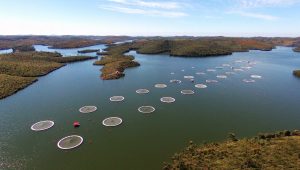 Madagascar caviar obtains ISO 14001 certification
Madagascar caviar obtains ISO 14001 certificationAcipenser is a subsidiary of Akanjo that is one of only two producers of caviar in the southern hemisphere. Eight of the 2,000 hectares covered by Lake Mantasoa, 50 kilometres from Antananarivo, are used to farm fish. Five species of sturgeon, including the famous Beluga, thrive in the lake’s limpid waters. Each cubic meter of water is occupied by no more than 5 kg of fish, which is ten times less than on traditional fish farms. The company has also tried to minimize its impact on the ecosystem thanks to an efficient lagooning system. Thanks to these measures, and its promise to make further progress in the continual improvement of environmental management, Acipenser has obtained ISO 14001 certification. The company now plans to obtain ISO 22000 certification for its fish eggs and meat processing plant.
> Find out more about Corporate Social Responsibility
> ISO 14001 – Environmental management systems
